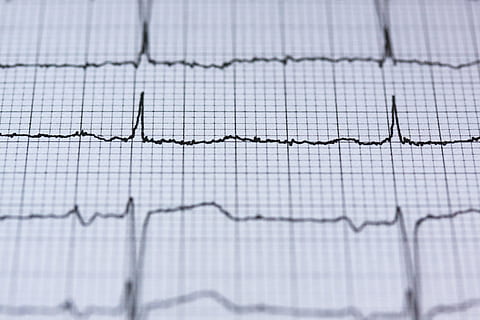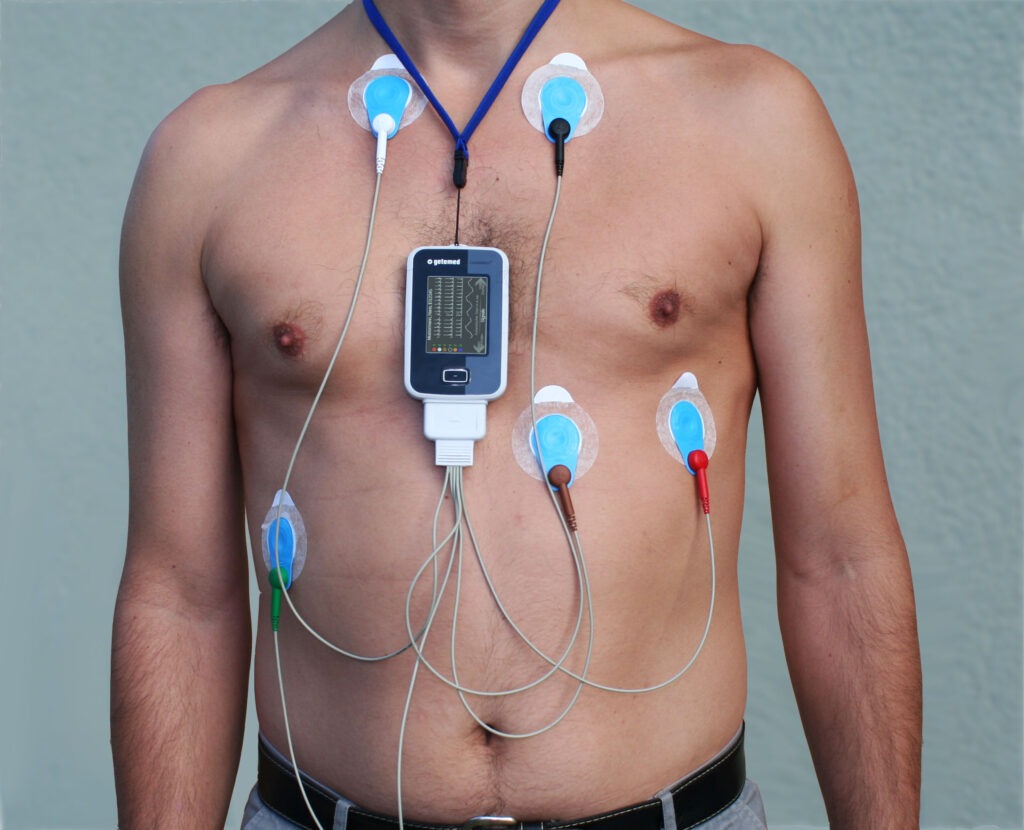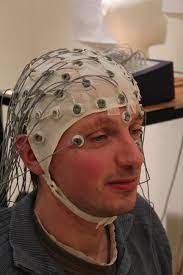What is the difference between ECG and EEG?

An ECG is a visual recording of the electrical impulses that move through your heart, used to identify heart conditions. In contrast, an EEG measures the electrical impulses through your brain to detect possible conditions affecting the brain.
What is an ECG, and what does it show?
An ECG or electrocardiogram is a visual recording of the electrical impulses that move through your heart, shown on graph paper.
It is a quick, common and painless test carried out as part of a routine physical examination, or it may be used as a test for heart disease.
An ECG test can be used for the following reasons:
- Assess heart rhythm to check for abnormalities
- Diagnose ischemia, or poor blood flow
- Diagnose a heart attack
- Diagnose specific abnormalities like an enlarged heart
- Find signs of a previous heart attack
- Check if particular treatments, like a pacemaker, are working properly

What are the different types of ECG tests?
- A resting ECG – is carried out while you are lying down.
- A stress or exercise ECG -is conducted while using a stationary bike or treadmill. It is always done under controlled conditions. The health care professional will stop the test if you experience any pain or discomfort or start to feel unwell. You may have a stress ECG if the symptoms typically occur during exercise.
- An ambulatory ECG – the electrodes are attached to a small machine worn on your waistband. It continuously monitors heart impulses for a day or more. It is usually done when the symptoms occur at random.
The type of ECG requested by your health care professional will depend on the suspected condition.
The latest, top of the range smartwatches from Apple, Garmin and Samsung all have built-in Electrocardiogram sensors. When used with a purpose-built app on your smartphone, it alerts you to any heart rate or rhythm abnormalities. These, however, do not replace the specialized care of your health care provider and the more detailed ECG tests done in a health care setting.
When do I need an ECG?
Your doctor may require you to have an ECG if you present any or more of the following symptoms:
- Chest pain
- Dizziness, lightheadedness, confusion
- Heart palpitations, or rapid pulse
- Shortness of breath
- Weakness, fatigue or decline in your ability to engage in physical activity that would typically be normal for you.
How is an ECG test conducted?
You lie calmly on your back with ten electrodes attached to your ankles, wrists, and chest. The electrodes pick up the electrical impulses that move through your heart. The test is conducted either in your doctor’s room, local clinic, or hospital.

How to prepare for the test?
You don’t need to do anything specific to prepare before the test.
However, do not apply excessive oils or creams before the test, as this may hinder contact of the electrodes with the skin. You will need to remove your shoes, socks and any full-length hosiery. In addition, you might want to wear a button-down shirt that can easily be removed.
After the test?
There may be slight local discomfort when the electrodes get removed, similar to removing a sticky plaster. Like many medical tests, you may not be able to get the results immediately as they may have to be looked at by a specialist. Your health care professional will advise you of further treatment should you have an abnormal ECG.
Also read – Why Your Heart Skips A Beat
Chest Pain That Comes and Goes
What is an EEG, and what does it show?
An EEG, or electroencephalogram, is a recording of electrical activity in the brain. Brain cells communicate via electrical impulses and are active all the time – even while the person is asleep. This activity shows up as wavy lines on an EEG recording.
An EEG test is often used to:
- Detect and investigate epilepsy
- Assess brain damage due to a head injury
- Investigate sleep disorders such as sleep apnoea
- Diagnose brain dysfunctions due to a variety of causes
- Investigate encephalitis or brain inflammation
- Confirm brain death in someone in a persistent coma.
What are the different types of ECG tests?
- Routine EEG – carried out while you rest quietly, typically lasting between 20 min and 40 min.
- Sleep EEG – As the name suggests, you’re asleep for this test. It could indicate sleep disorders, or if the routine EEG did not give satisfactory results.
- Ambulatory EEG – involves continuous monitoring of your brain activity throughout the day and night over one day or multiple.
- Video EEG – involves the patient being filmed while the test is conducted. Typically done over a few days, the video footage assists in the analysis of the EEG recordings.
- Invasive EEG – is not very common but could be requested to determine if surgery is possible for a person with complex epilepsy. Electrodes are placed directly on the brain to pinpoint where seizures might be coming from.
The type of EEG requested by your health care provider will depend on the suspected cause of your symptoms.
How is the test conducted?
For the routine EEG, you’ll be sitting comfortably in a chair. You’ll have about twenty small electrodes are attached to your scalp using a special glue or paste.
These, like the ECG test, do not send electricity into your body. Instead, it only records the brain activity and reproduces it on a screen or graph paper. Sometimes the electrodes are attached to a plastic cap pulled tightly over your head to ensure optimal contact with your scalp.

How to prepare for the test?
No special preparation is necessary for a routine EEG, but it is good to make sure your hair is clean, dry, and free of hair products like gel and cream. Check with your health care professional if you should avoid particular food and drinks before the test. You might want to bring a comb or hairbrush as hair tends to be messy afterwards.
For a sleep EEG, you might be asked to stay awake the night before and be sleep deprived for the test to make sure you sleep during the test.
After the test?
The test will have to be examined by a specialist, and your health care professional will advise you as to when the results will be ready. In addition, your health care professional will discuss any abnormal EEG and subsequent treatment plan with you.
Want More Information?
If you want to learn even more about ECG and EEG, here are some helpful links:
Sharing is caring! Your love and support motivates us!